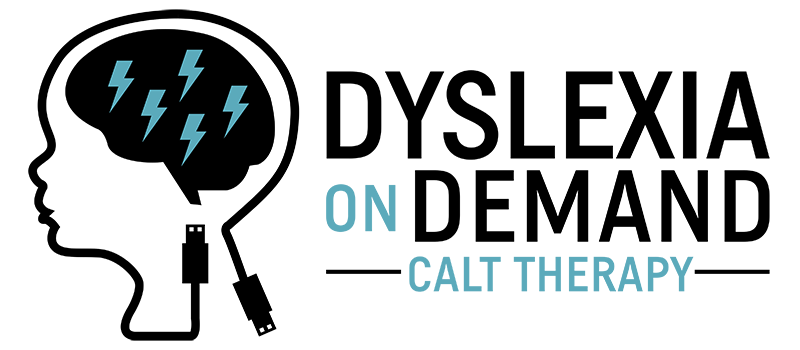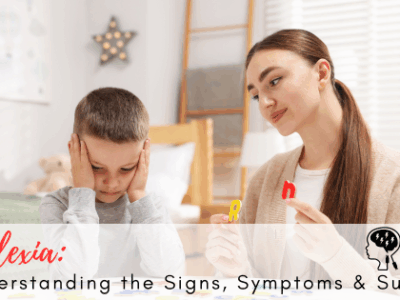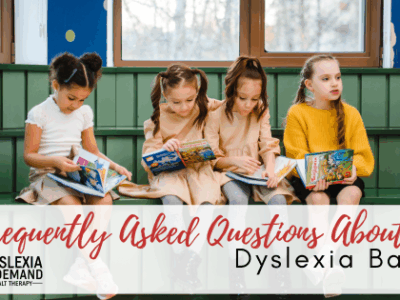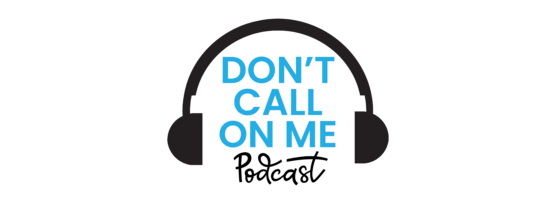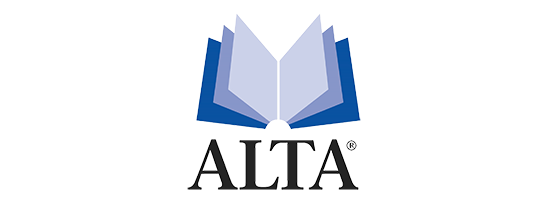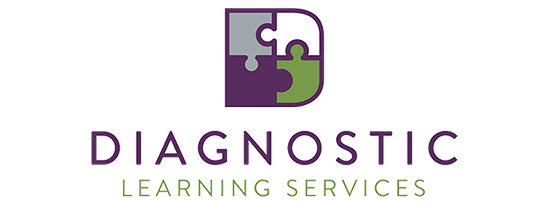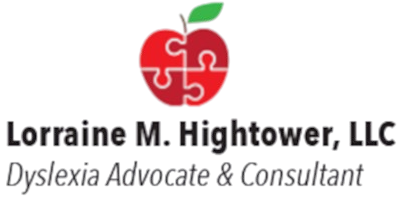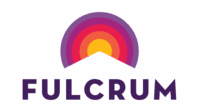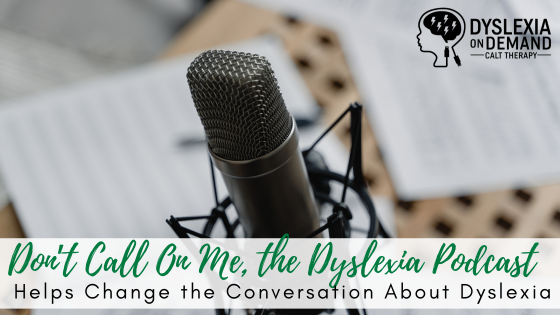
How Don’t Call On Me, the Dyslexia Podcast Helps Change the Conversation About Dyslexia
Executive Summary:
Don’t Call on Me, the Dyslexia Podcast brings together real stories, expert insights, and heartfelt conversations that help families, educators, and students better understand dyslexia. Hosted by Megan Pinchback of Dyslexia on Demand and Eryn Schnel Yolac of Advocate to Educate, the podcast fosters connection, advocacy, and hope within the dyslexia community.
Podcasts have emerged as a great way to educate, connect, and entertain people for more than 20 years now. There’s always something to talk about. When it comes to informative, educational, and entertaining content about dyslexia, Don’t Call On Me, the Dyslexia Podcast, offers personal stories, expert advice, and real-life discussions for families and kids who are dealing with this learning difference.
Podcasters Megan Pinchback from Dyslexia on Demand and Eryn Schnel Yolac from Advocate to Educate joined forces to create Don’t Call on Me, the Dyslexia Podcast. It’s a podcast that continues their advocacy for the dyslexia community through a medium that reaches beyond tutoring and therapy sessions. Together—with their podcast guests—they’ve harnessed the power of sharing real, personal stories throughout their episodes. Families of students with dyslexia need more resources than just tutors or books about learning disabilities. Don’t Call on Me, the Dyslexia Podcast has created a place for deep conversations that help to inspire, support, and uplift the dyslexia community. Read on to learn more about how Don’t Call on Me, the Dyslexia Podcast helps to change the conversation about dyslexia.
Don’t Call on Me, the Dyslexia Podcast helps to build both resources and community. This podcast provides such a great platform for connecting listeners through shared experiences. Episodes can help to make people facing dyslexia feel less isolated; they can even point listeners to different dyslexia resources as well as avenues for advocacy. The real and relatable stories that podcasters Megan and Eryn share can create a great sense of community. One of the greatest communities for students with dyslexia can be found online at Dyslexia on Demand, an organization that offers dyslexia therapy with highly trained Certified Academic Language Therapists (CALTs). Their online dyslexia programs have the power to truly change lives of children who struggle with reading. Dyslexia on Demand’s therapy program helps to build a high degree of accuracy, knowledge, and independence for students with dyslexia.
This podcast humanizes the dyslexia experience through real, personal stories. Don’t Call on Me, the Dyslexia Podcast episodes feature guests that tell stories from all ages and stages of dyslexia. This helps to create empathy and understanding among listeners, bringing relatable content to every show. Sharing personal journeys brings the conversation out of textbook and clinical definitions or statistics about dyslexia. So many of these shared stories counter the common misconception that dyslexia is caused by a lack of capability or intelligence; Instead, many episodes highlight the resilience and distinct strengths of dyslexic people who have discovered different paths to success.
The diverse strengths of dyslexic people shine through. So many people with dyslexia go on to do incredible things through productive, fulfilling careers. Don’t Call on Me, the Dyslexia Podcast has highlighted the stories of dyslexic guests who have used their big-picture perspective, creativity, emotional intuition, and communication to help them succeed in a variety of professions. Listen to episodes to learn from different dyslexic individuals who have found success such as a sales expert who excels in his field or an engineer and adventure athlete who has achieved big things in his complex fields.
Don’t Call on Me, the Dyslexia Podcast challenges stigma and misconceptions. One major goal of this podcast is to remove the stigma of dyslexia. As a forum for open discussion about the frustrations, struggles, and emotional toll of dyslexia, the podcast helps to normalize dyslexic experiences for listeners who are navigating a road that presents some challenges. Sometimes stories about difficulties can be just as inspirational as stories about success. The hosts of Don’t Call on Me, the Dyslexia Podcast are actively helping to shift the narrative about dyslexia from it being a problem to the understanding that dyslexia is a neurological difference that can be understood and supported.
It highlights the importance of early intervention and proper support for dyslexia. A dyslexia diagnosis can be life changing, and taking action after you have a diagnosis is so important. Many episodes of Don’t Call on Me, the Dyslexia Podcast feature discussions about the science of reading, effective interventions, and how therapists and advocates can play a key role in a dyslexia journey. CALTs are often podcast guests, helping to educate listeners on how dyslexia therapy is different than tutoring—and how it is more successful with results in better reading skills and beyond.
Don’t Call on Me, the Dyslexia Podcast is promoting understanding of and advocacy for dyslexia. Discover dyslexia support in a community that you can relate to. Check out the collection of podcast episodes to hear real conversations about dyslexia, firsthand stories, expert advice, and candid discussions. A dyslexia diagnosis has the potential to be quite isolating, but Don’t Call on Me, the Dyslexia Podcast has created a place for people to connect to find solutions, to discover inspiration, and to celebrate the resilience and strength that can be found with dyslexia. To discover more, you can watch, listen, or even apply to share your story on an episode of Don’t Call on Me, the Dyslexia Podcast.
FAQs
1. What makes Don’t Call on Me, the Dyslexia Podcast different from other educational podcasts?
This podcast focuses on personal stories from people with dyslexia, along with insights from educators and therapists, to create an authentic and empowering space for understanding dyslexia.
2. Who hosts the podcast and what are their backgrounds?
The show is co-hosted by Megan Pinchback, founder of Dyslexia on Demand, and Eryn Schnel Yolac, founder of Advocate to Educate—both long-time advocates for dyslexia awareness and education.
3. How can listeners get involved or share their stories?
Listeners can explore episodes, connect through Dyslexia on Demand’s website, or apply to be featured on the podcast to share their own dyslexia journey and inspire others.
References
International Dyslexia Association. (2017). Definition of dyslexia. International Dyslexia Association. https://dyslexiaida.org/definition-of-dyslexia/
National Center on Improving Literacy. (2020). Dyslexia: What families need to know. University of Oregon. https://improvingliteracy.org/fact-sheet/dyslexia-what-families-need-know
Shaywitz, S. E., & Shaywitz, B. A. (2020). Overcoming dyslexia: Second edition. Vintage.
Snowling, M. J., & Hulme, C. (2012). Interventions for children’s language and literacy difficulties. International Journal of Language & Communication Disorders, 47(1), 27–34. https://doi.org/10.1111/j.1460-6984.2011.00081.x
Academic Language Therapy Association. (n.d.). What is a Certified Academic Language Therapist (CALT)? https://www.altaread.org/
Sanfilippo, J., Ness, M., Petscher, Y., Rappaport, L. A., Zuckerman, B., & Gaab, N. (2020). Reintroducing dyslexia: Early identification and implications for pediatric practice. Pediatrics, 146(1), e20200484. https://pmc.ncbi.nlm.nih.gov/articles/PMC7329249/
